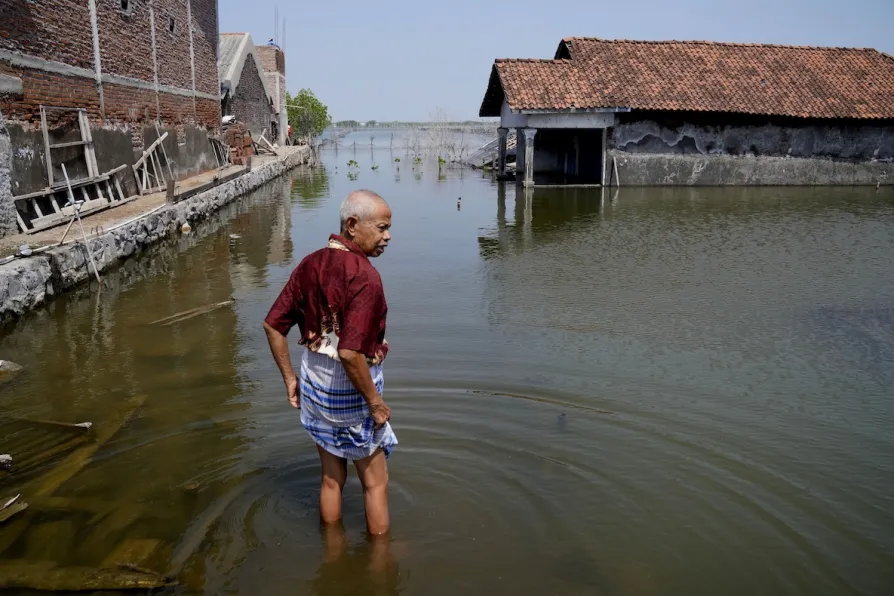Global sea levels have risen faster since 1900 than over any preceding century in the last 3,000 years, UN chief warns
UN Security Council holds first-ever meeting on the threat to international peace and security from rising sea levels

 A man walks on a flooded pathway outside his house in Timbulsloko, Central Java, Indonesia, July 30, 2022.
A man walks on a flooded pathway outside his house in Timbulsloko, Central Java, Indonesia, July 30, 2022.
GLOBAL sea levels have risen faster since 1900 than ever before and their relentless increase puts countries such as Bangladesh, China, India and the Netherlands at risk, United Nations chief Antonio Guterres has warned.
In a grim speech to the security council’s first-ever meeting on the threat to international peace and security posed by rising sea levels, Mr Guterres said on Tuesday that sea levels would rise significantly even if global warming was “miraculously” limited to 1.5°C.
He warned that the Earth is more likely on a path to warming that amounts to a death sentence for vulnerable countries, which include many small island nations.
Similar stories

Governments must dramatically slash emissions and support the transition to a renewable future in 2025, UN says

Protesters hit out at fossil fuel corporations fuelling the climate crisis and profiting from genocide in Gaza












